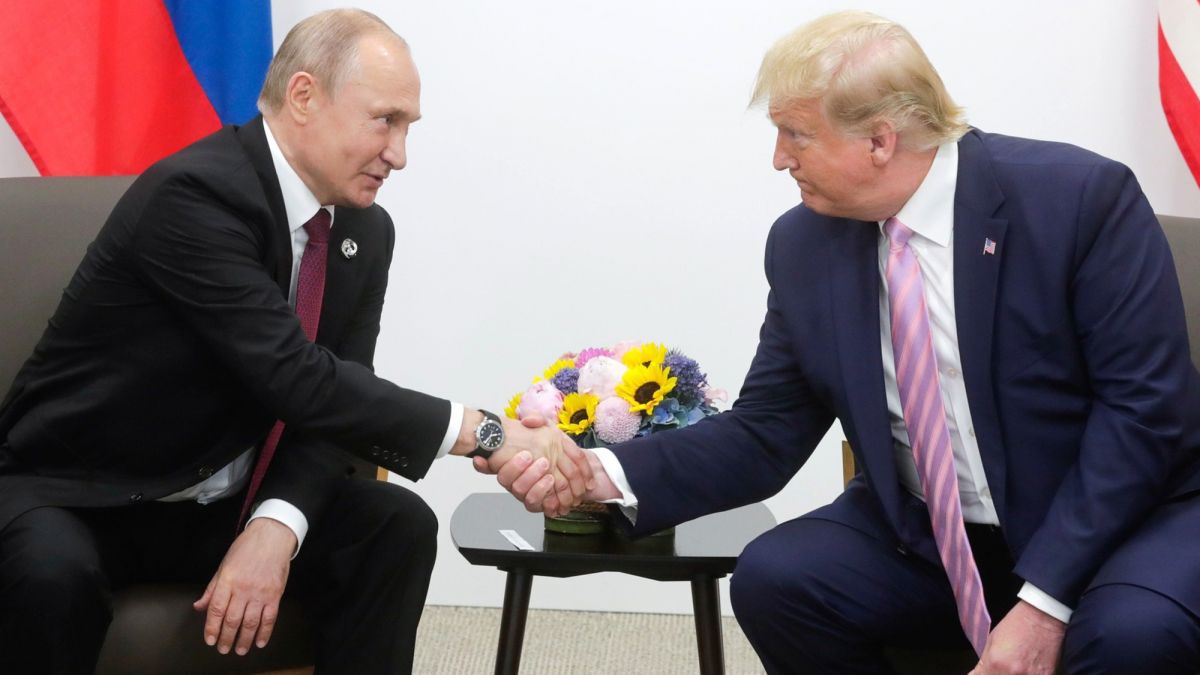Trump’s talks with Putin: US National Intelligence tells whether they will be a turning point for Ukraine
17 March 22:12
The conversation between American leader Donald Trump and Russian President Vladimir Putin will be productive and will take place “at the appropriate time.” Director of National Intelligence Tulsi Gabbard said this in an interview with NDTV on March 17, "Komersant Ukrainian" reports.
“I’m confident that at the appropriate time, President Trump will have a very productive conversation with Putin that will reaffirm his, the owner of the White House, unwavering commitment to peace,” Gabbard said.
According to her, Trump “looks at the ongoing conflict very soberly.”
It is worth noting that US President Donald Trump and Russian leader Vladimir Putin are preparing for a key phone call on March 18, 2025, the main topic of which will be a potential 30-day ceasefire in Ukraine. This discussion is taking place against a backdrop of escalating hostilities, diplomatic maneuvering, and growing international pressure.
While Ukraine is potentially willing to accept the proposed ceasefire, Russia has yet to confirm its position, making the upcoming phone call between the two politicians a crucial test of Moscow’s willingness to engage in negotiations. The US administration sees this potential ceasefire as a stepping stone to broader peace talks, although significant obstacles remain.
Trump’s view: Ceasefire as a diplomatic opportunity
Speaking to reporters aboard Air Force One, President Donald Trump shared his vision for the upcoming discussion. He called the 30-day ceasefire an opportunity to test Russia’s commitment to de-escalation, emphasizing that the United States is open to dialogue but will not compromise Ukraine’s sovereignty.
“We want to see if we can end this war. Maybe we can, maybe we can’t, but I think we have a very good chance,” Trump said.
Political analysts who follow the situation believe that these words of the American president mark a change in tone from previous policy, when the Trump administration briefly suspended military aid to push Ukraine to direct negotiations. However, the recent intensification of Russian attacks on Ukrainian infrastructure has prompted Washington to renew its commitment to support Kyiv militarily while seeking diplomatic solutions.
Putin’s position: “Cautious engagement” or tactical delay?
While the Kremlin has not publicly rejected the ceasefire proposal, Russian President Vladimir Putin has indicated that he has more important issues to address before Moscow considers a cessation of hostilities. It is worth noting that even some Russian officials view the ceasefire as a tactical pause rather than a step toward a lasting settlement.
The main points of contention between the United States and Russia:
- Territorial control. Moscow insists on formal recognition of the regions it occupies, while Ukraine strongly rejects this demand.
- Security guarantees. Russia wants guarantees that NATO will not expand further east.
- Sanctions relief. The Kremlin wants economic restrictions to be eased as part of any broader peace agreement.
Analysts believe that Russia’s hesitation on the ceasefire may be related to the ongoing military offensives, and Putin may be waiting to see if further territorial gains can strengthen Moscow’s negotiating position.
Potential benefits of a ceasefire
If an agreement is reached, the 30-day ceasefire could facilitate important humanitarian efforts, including
- Prisoner exchange. An opportunity for both sides to exchange captured soldiers.
- The return of deported Ukrainian children. Addressing one of the most controversial war crimes charges against Russia.
- Restoration of infrastructure. A temporary easing of shelling may allow Ukraine to restore damaged energy and transportation networks.
The US is currently considering a possible 30-day ceasefire as a confidence-building measure that could potentially lay the groundwork for more comprehensive peace talks in the future.
Should we expect Trump-Putin talks in Saudi Arabia?
In addition to the March 18 phone call, there are discussions about the possibility of a face-to-face meeting between Trump and Putin in Saudi Arabia. Although the date has not yet been determined, sources suggest that such a high-level diplomatic meeting could determine the trajectory of US-Russian relations for the entire period of Donald Trump’s presidency.
Saudi Arabia has positioned itself as a neutral mediator to facilitate discussions on potential peace agreements. If the ceasefire talks progress, a face-to-face meeting between Trump and Putin could begin to discuss long-term security guarantees and economic arrangements.
What are the challenges in the context of possible negotiations with the Kremlin in the near future?
NATO’s position. European allies remain skeptical of any agreement that jeopardizes Ukraine’s sovereignty.
Opposition in Congress. U.S. lawmakers, especially hawks in the Senate, oppose any deal that could be seen as appeasing Putin.
Russia’s true intentions. Skeptics argue that Moscow could be using diplomacy as a stalling tactic to regroup militarily.
Despite this uncertainty, Donald Trump remains committed to testing diplomatic relations with Russia.
As the world watches, the conversation between the US and Russian presidents on March 18 will provide key insights into the Kremlin’s strategic calculations, Trump’s diplomatic priorities, and the future of Ukraine.









